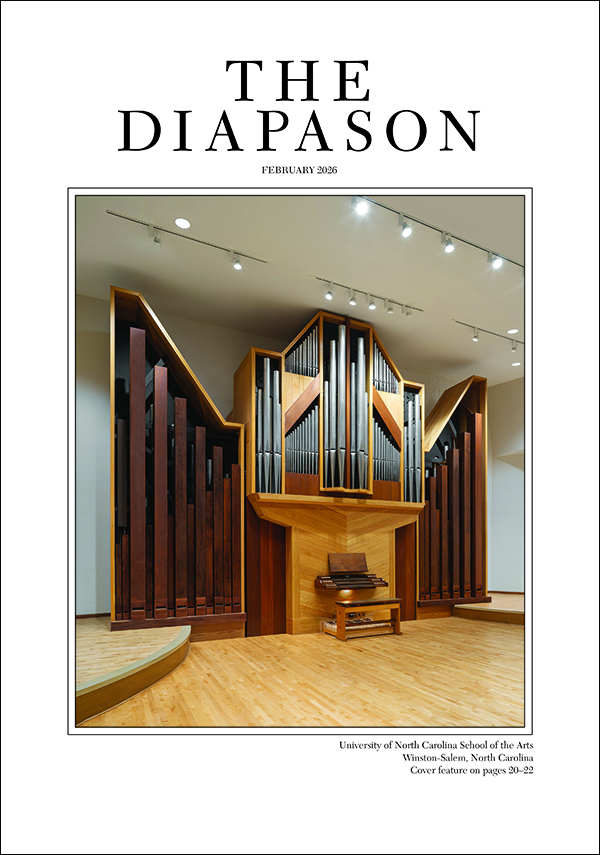
James Merle Weaver, 82, died April 16 in Rochester, New York. Born in Danville, Illinois, he began piano and organ studies there. He attended the University of Illinois, Champaign-Urbana, during which time he gave piano and organ demonstrations and private lessons at a local music store and played Sunday church services. While on a high school field trip to Washington, D.C., Weaver saw his first harpsichords, displayed at the Smithsonian Institution’s National Museum of Natural History. During his sophomore year at the U of I, he went to Amsterdam to study harpsichord and historical performance practice with Gustav Leonhardt.
Returning to Illinois, Weaver completed his bachelor’s (1961) and master’s (1963) degrees. Weaver and his young family then moved to Boston’s North End. His facility as a continuo player developed, both as a concert artist and for recordings. While in Boston, he befriended the music director of Old North Church, John T. Fesperman, who had been Leonhardt’s first American student (1955–1956). Fesperman left Boston in 1965 to take a position at the collection of musical instruments in the Smithsonian’s newly opened National Museum of History and Technology; Weaver followed him to the Smithsonian the next year, where he began a diverse career producing concert programs and exhibits, among other activities. In 1971, he worked to found the Friends of Music at the Smithsonian, which continues to support the Smithsonian Chamber Music Society.
Weaver pursued his exploration of newly restored harpsichords and fortepianos in the Smithsonian’s collection, producing recordings. He established an ensemble in residence at the museum in 1976, the Smithsonian Chamber Players, which produced recordings through the Smithsonian Collection of Recordings, an arm of the institution’s Division of Performing Arts (DPA), which Weaver joined in the late 1970s.
In 1983, DPA’s functions were absorbed by other portions of the institution, and Weaver returned to the Division of Musical Instruments at the National Museum of American History (NMAH), as the National Museum of History and Technology had been renamed in 1980.
In addition to his Smithsonian activities, Weaver occasionally appeared with the National Symphony Orchestra and various professional choruses of the area. With the Smithsonian Chamber Players, he had a presence in the inaugural festivities for Jimmy Carter and later performed twice, including once as harpsichord soloist, at the Carter White House. He was subsequently invited to play at five inaugural luncheons, from Ronald Reagan’s second inaugural to George W. Bush’s first. Weaver taught at various times at American University, the University of Maryland, Cornell University, the Aston Magna Academy, and the Baroque Performance Institute at Oberlin Conservatory of Music.
Following his move to Washington, D.C., in the 1960s, Weaver served as organist or organist/choirmaster at several churches, including Baltimore’s Mount Calvary Church, Washington’s St. Columba’s Episcopal Church and All Souls Episcopal Church, and finally at All Hallows Episcopal Church, Davidsonville, Maryland.
Following retirement from the Smithsonian, Weaver was appointed executive director (later chief executive officer) of the Organ Historical Society. During the last years of his tenure at the OHS, he supervised the relocation of its headquarters and archives to “Stoneleigh” in Villanova, Pennsylvania. He also expanded the E. Power Biggs Fellowship program.
James Merle Weaver is survived by husband/partner Samuel Baker; son Evan (Jill), three grandchildren, and two great-grandchildren. He was predeceased by wife Patricia Estell and long-time former partner Eugene Behlen. Memorial gifts may be given to the Biggs Fellowship Program of the Organ Historical Society, 330 N. Spring Mill Road, Villanova, PA 19085; or the Friends of Music at the Smithsonian, P. O. Box 37012, Washington, DC 20013-7012 (https://www.smithsonianchambermusic.org/donate).

